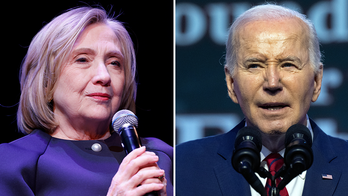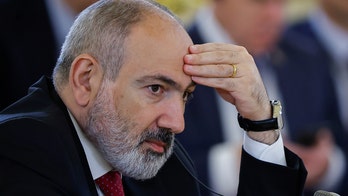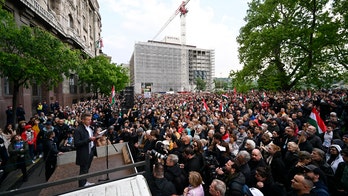Amidst escalating tensions between Israel and Hezbollah, experts delve into the crucial role of Israel's offensive operations in containing the threat posed by the Iranian proxy terrorist organization. With Lebanon facing the deadliest day in its history since 2006, both sides remain on the brink of all-out war.
Israel's response to the recent missile strikes from Hezbollah has once again highlighted the effectiveness of its offensive strategy. By targeting Hezbollah cells and weapon stashes within Lebanon, Israel aims to disrupt the organization's infrastructure and limit its ability to launch further attacks.

Israel's Offensive Strategy: A Key to Its Resilience Against Hezbollah
Data from American fire-tracking satellites analyzed by The Associated Press demonstrates the wide range of Israeli airstrikes, covering an area of over 650 square miles in southern Lebanon. These strikes have ignited flammable materials, including munitions and fuel, providing clear evidence of Israel's precision and intensity.
The Israeli military maintains that it does not seek an escalation into an all-out war with Hezbollah. However, it remains prepared to retaliate against any aggression, as evidenced by its strikes against Hezbollah targets following the deadliest day in Lebanon since 2006.

Israel's Offensive Strategy: A Key to Its Resilience Against Hezbollah
Despite the ongoing conflict, top Israeli officials have expressed a desire to avoid a wider escalation. President Isaac Herzog emphasizes that the consolidation of weapons at the Israel-Lebanon border is not preparation for an invasion.
Major General Pat Ryder, a Pentagon spokesperson, warns of the potential for the conflict to expand regionally. He highlights the "dangerous situation" and urges for a reduction of tensions and a cease-fire.

Israel's Offensive Strategy: A Key to Its Resilience Against Hezbollah
The United States has maintained its support for Israel's right to self-defense while also calling for restraint. Defense Secretary Lloyd Austin has engaged in discussions with Israeli Defense Minister Yoav Gallant, emphasizing the need for a de-escalation.
The aircraft carrier USS Truman, two destroyers, and a cruiser have sailed from Norfolk, Virginia, to the Mediterranean on a previously scheduled deployment. This deployment provides the possibility for the U.S. to maintain a strong presence in the region and respond to any further escalation in violence.

Israel's Offensive Strategy: A Key to Its Resilience Against Hezbollah
The situation between Israel and Hezbollah remains volatile and unpredictable. Both sides have demonstrated their willingness to respond with force, and the potential for a wider regional conflict remains a concern.
Israel's offensive strategy has played a crucial role in containing Hezbollah's threat and protecting its citizens. However, it remains essential for all parties involved to prioritize dialogue, diplomacy, and a reduction of tensions to prevent the conflict from escalating further.










